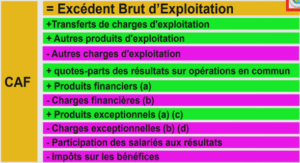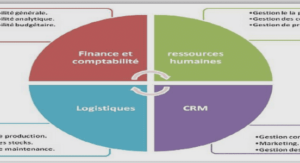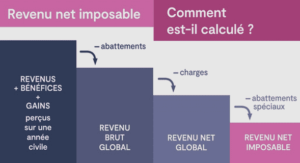Fun activities can be used in the field of education
Pre-speaking : Guided Questions
Questions: T: Who has ever played dominoes? The teacher asked students to raise their hands. T: Can you tell us how you play dominoes? Can you give some rules? S: The player has seven dominoes each and the first player to get rid of his or her dominoes wins. Each player should hide his/her dominoes from the other players. The number of the spots on the domino should match. T: Do you like playing dominoes? SS: Yes T: So, we are going to play dominoes. Instructions: This time this is how we play dominoes. 1- Form a group of five people and each player draws five dominoes. 2- Whoever has double six starts by playing it face up in the middle of the table. 3- Each player in turns now has to match one end of the central row of dominoes with one of the dominoes in his hand. Then, count the spots and read the related instruction in the question sheet aloud and answer it within two minutes. 4- If no one has a matching domino, then the player one (the first player) can play any domino in his hand. 5- The first player to get rid of all his or her dominoes wins. While-speaking : Playing dominoes Question sheet : Question 1 : Tell us about your daily routines. (Unit4) Question 2 : Poor countries will never get developed. They become poorer and poorer. Do you agree? After giving your point of view, ask one of your friends to give an opposite answer. (Unit 1) Question 3: What do you think about insecurity in Madagascar? (Causes, consequences) Question 4 : According to you, what may cause generation gap and how to solve it? (Unit3) Question 5 : What are the advantages and drawbacks of using facebook? (Unit 6) Question 6 : Public schools should be free of charge for all citizens. Give your arguments. Question 7 : How can we reduce unemployment? (Unit 5)
Question 8 : You had just bought a new cloth in a shop.
When you arrived at home, it didn’t fit you and there was a hole in it. You wanted to change it to a new one; so, you went back to the shop. (Choose one person in the group to be the shop assistant. Introduce yourself to the shop assistant, explain him or her situation and ask for another size of the cloth.) (Unit9) Question 9 : What does: WHO, FAO, IMF, UNESCO stand for? Explain their aim to your friend. (Unit 7) Question 10 : What are the causes of the destruction of the environment? Then give one solution and ask your team to give other solutions to protect the environment. (Unit 9) Question 11 : Tell your friends about a memorable event that you experienced in the past. An event that made you happy or sad. (Unit 14) Question 12 : Which part of your body you don’t like or wish to have it differently. Use ‘I wish’ when you built your sentence. (Unit 10) Post-speaking : Discussion Situation : ‘Women should not work; their place is at home.’ Do you agree or disagree? Hint : The teacher asks four (4) volunteers students; that is, two boys and two girls to come in front of the class to discuss the given topic. The audiences are asked to listen to them carefully and after the discussion they are expected to give ‘likes’ or ‘dislikes’. The pair who has the most ‘likes’ wins. Before dealing with the main discussion, the volunteers students are given time (5min) to prepare; that is, to collect ideas.
COMMENTS ON EXPERIMENTATION N°4
In the pre-speaking stage, the fact of asking students about dominoes helped them to remind the general rules about domino game. It also helped some students who did not know the real meaning of dominoes in Malagasy and when one student was asked to give some rules, the students said ‘Ay ve dômy e!’. Hearing the students’ reaction, we felt very optimistic because the students knew how to play the game. Moreover, the fact that the learners had already played the game has attracted their attention and motivation. Even though the rule of the dominoes that the students are asked to play was not totally the same as they played in their ordinary life, they did not have difficulty playing the game. During the while speaking stage, we felt that most of the learners were interested in the game. We also noticed that the learners enjoyed the activity as it gave them an opportunity to review their lessons and also to improve their speaking skill in a relaxed and enjoyable atmosphere. As for the post speaking activity, the students were not reluctant to participate not only because the topic is not new to them but also they really want to share and defend their ideas. 76 They dealt with the topic seriously and one of the positive aspects that attract our attention in this experimentation was the fact that some boys disagree with the statement and they really cared about life. The fact of asking the remaining students to be both the audiences and the judges also helped much to avoid noise in the classroom. The learners particularly enjoyed the role of the judges when they were asked to show a thumb up or a thumb down to express ‘likes’ or ‘dislikes’. Unfortunately, some negative points should be mentioned. During the while speaking stage some students remain stubborn especially some boys sitting at the back. They did not follow the instructions; either they just played the dominoes and neglected the questions or they just tried to answer all the questions in the question sheet without playing the dominoes. So, we decided to stand next to them for few minutes to monitor the game and asked them to deal with it properly. Besides, for the time devoted to answer the questions, some students managed to answer the questions within the limited time; however, some other students found some questions hard to answer and that made them exceed the time limits (2 minutes). Besides, in the post speaking activity we could only have six (06) pairs of students; that is, twelve (12) students as the time was not enough. Because of financial problems, we could not afford authentic dominoes so we decided to use homemade dominoes; that is, dominoes made of box. In a nutshell, despite the negative points we have mentioned, we think that this experimentation was good and our objective was reached. This experimentation revealed us that games can be used to improve students’ speaking skill in an enjoyable and motivating atmosphere. It also helped students to work hard without noticing the effort they spent. We, then, thought that not only is game one of the activities that learners find fun but it is also useful for teachers who want to improve their students’ ability to speak.





